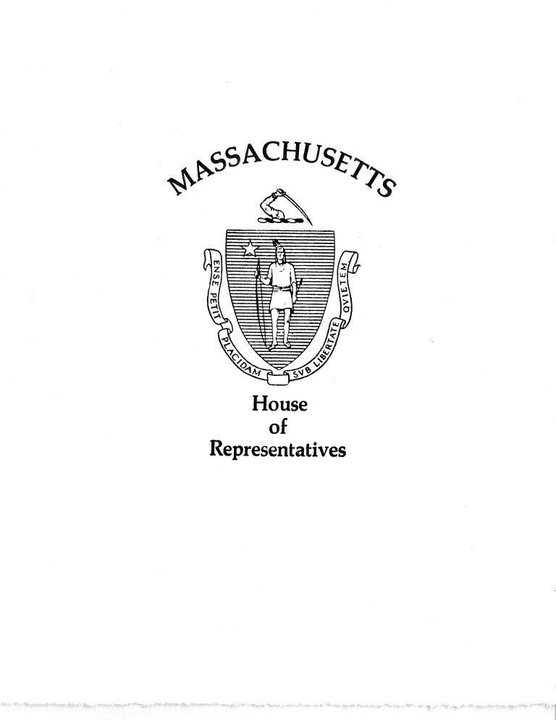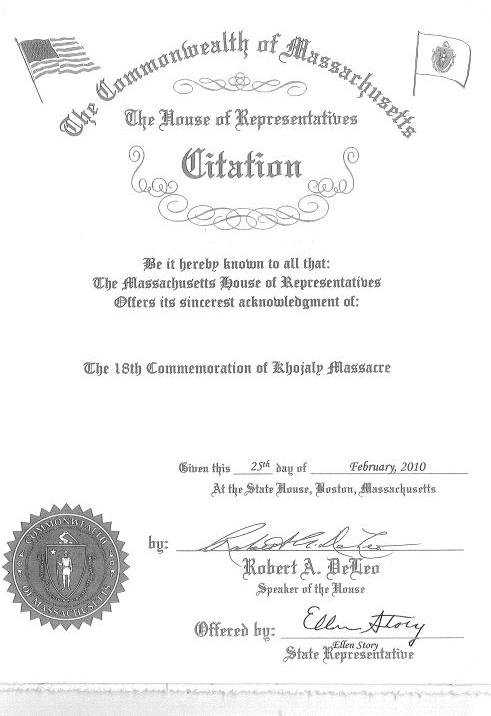Breaking the Silence, written and directed by John Pilger
By Richard Phillips
12 January 2004




April 27, 2010 05:00
By: Vladimir Socor
The US State Department seems disappointed, but not entirely surprised, by Yerevan’s April 22 suspension of Armenian-Turkish “normalization.” Assistant Secretary of State, Philip Gordon, in charge of this policy, finds solace in Armenian President, Serzh Sargsyan’s decision to suspend, rather than terminate the effort; and hopes that Yerevan would continue to cooperate with the US-driven process goal. Gordon as well as State Department Spokesman, Philip Crowley, argued that such normalization meets the interests of Armenia, Turkey, and other [unnamed] countries in the region (press releases cited by News.Az and Arminfo, April 23).
These statements, however, seem to ignore Azerbaijan’s view and the change in Turkey’s view. Inasmuch as the normalization focuses on opening the Turkish-Armenian border unconditionally, or no longer linked to a withdrawal of Armenian troops from Azerbaijan’s interior –Baku deemed it to be against its interests all along. Ankara had rallied to Baku’s view last December already.
Since April 2009, US President, Barack Obama’s administration has pressed for opening Turkey’s border with Armenia unconditionally Thus, the October 2009 Zurich protocols, strongly backed by the US, required Turkey to establish diplomatic relations with Armenia and open the mutual border “without preconditions.”
Washington’s policy seems driven primarily by domestic politics. The administration hopes to remove the annual drama of Armenian genocide recognition from the center-stage of US politics. It seeks its way out of the dilemma of losing Turkey versus any loss of the US Armenian vote. “Normalization” of Turkish-Armenian relations, centered on the re-opening of that border, was offered as a substitute for the unfulfilled electoral-campaign promises to recognize an Armenian genocide in Ottoman Turkey.
Washington’s normalization concept, however, has also turned out to be unfulfilled. Tilting sharply in Armenia’s favor at Azerbaijan’s expense, it backfired first in Azerbaijan and shortly afterward in Turkey. Instead of de-aligning Ankara from Baku, as seemed briefly possible, it led Turkey and Azerbaijan to close ranks against an unconditional “normalization” of Turkish-Armenian relations, prior to a first-stage withdrawal of Armenian troops from Azerbaijan.
The US initiative seemed unrelated to any regional strategy in the South Caucasus. It actually coincided with an overall reduction of US engagement in that region, downgrading the earlier goals of conflict-resolution and promotion of energy projects. Moreover, it risked splitting its strategic partner Azerbaijan from Turkey, compromising the basis for a subsequent return to an active US policy in the region.
Previous US administrations had also proposed to open the Turkish-Armenian border, but never as a goal in itself, unconditionally, or by some deadline in the political calendar, as has most recently been the case. Moreover, those earlier discussions considered opening both the Turkish and Azeri borders with Armenia, as part of an overall settlement, without dividing Ankara and Baku from each other on that account. Those border-opening proposals were being discussed as one element in comprehensive negotiations toward stage-by-stage resolution of the Armenian-Azeri conflict, and in conditional linkage with Armenian troop withdrawal from inner-Azeri districts, again in contrast to Washington’s recent proposals.
Yet, there is an element of continuity between those earlier border-opening proposals and the latest one. That common element is the optimistic belief that open borders and freedom to trade are a prerequisite to resolution of conflict and durable peace. This carryover from Manchesterianism often colored US political debates about the possibility of opening the Azeri and Turkish borders with Armenia. Yet, the diplomatic process integrated this issue within the broader negotiations. It did not single it out from that context or allow it to become a currency of exchange in US domestic politics.
The logic of the administration’s initiative from 2009 to date has implied that Washington would “deliver” the re-opening of Turkey’s border with Armenia; while Turkey would in turn “deliver” Azerbaijan by opening the Turkish-Armenian border, without insisting on the withdrawal of Armenian troops from inner-Azeri territories. That conditionality is a long-established one in these negotiations. However, Washington currently insists that the two processes be separated and that Turkey opens that border unconditionally as per the October 2009 Zurich protocols.
Breaking that linkage would irreparably compromise the chances of a peaceful, stage-by-stage settlement of the Armenian-Azeri conflict. It would indefinitely prolong the Armenian military presence inside Azerbaijan, placing Russia in a commanding position to arbitrate the conflict, with unprecedented leverage on an Azerbaijan alienated from its strategic allies.
Washington had persuaded Ankara to break that conditionality in the October 2009 protocols, which came close to splitting Turkey from Azerbaijan. However, Turkey reinstated that conditionality unambiguously from December 2009 onward. Prime Minister, Recep Tayyip Erdogan, declared this repeatedly and publicly, contradicting Obama and the US State Department on this account at the December 2009 and April 2010 Washington summits and afterward. Following the latter event, Turkish Foreign Minister, Ahmet Davutoglu, flew to Baku with reassurances that Turkey would only open the border with Armenia if Armenian troops withdrew from inner-Azeri districts. The assurances were the more significant after the US White House had demonstratively excluded Azerbaijan from the Washington summit (Anatolia News Agency, April 14, 18-20).
The US administration’s policy has now backfired on all sides, Yerevan being the last to abandon it after the policy had failed to “deliver” Ankara and Baku. The Obama administration can now be expected to revert to a balanced approach by taking Azeri and Turkish views more carefully into account.
https://jamestown.org/program/us-conflict-resolution-policy-backfires-in-yerevan/

 The House of Representative of the Commonwealth of Massachusetts State (USA) has accepted relative document on the day of 18th Commemoration of Khojaly Massacre.
The House of Representative of the Commonwealth of Massachusetts State (USA) has accepted relative document on the day of 18th Commemoration of Khojaly Massacre.
The document dated on 25 February 2010 is signed by Speaker of the House Robert De Leo says: “Be it hereby known to all that: The Massachusetts House of Representatives offers its sincerest acknowledgment of: the 18th Commemoration of Khojaly Massacre”.
Justice for Khojaly campaign expresses its gratitude for the initiative of Members of House of Representatives to commemorate the 18th anniversary of the Khojaly massacre in House’s session that took place on February 25, 2010.
 We appreciate and applaud the initiative on remembrance and recognition of Hause of Representatives this historical tragedy of humanity perpetrated against the civilian population of the Khojaly town (Azerbaijan) by Armenian military gangs and Ex-Soviet 366th regiment in February 1992. By raising this issue in legislative institutions it will be possible to make it globally heard by decision-makers around the globe and condemn crimes that are perpetrated against innocent victims of conflicts.
We appreciate and applaud the initiative on remembrance and recognition of Hause of Representatives this historical tragedy of humanity perpetrated against the civilian population of the Khojaly town (Azerbaijan) by Armenian military gangs and Ex-Soviet 366th regiment in February 1992. By raising this issue in legislative institutions it will be possible to make it globally heard by decision-makers around the globe and condemn crimes that are perpetrated against innocent victims of conflicts.
We also invite the friends of Justice for Khojaly campaign to sign the petition to World leaders and call them to recognize the Khojaly massacre as a crime against humanity at the following link http://www.justiceforkhojaly.org/?p=petition. By signing the petition the one can address the drafted letter to UN, President of the US, European Union, Council of Europe, OIC Parliamentary Unit chairpersons and other decision-makers of your geographical organizations.
If you want peace, work for justice.
Justice for Khojaly

on http://www.facebook.com/pages/Khojaly-town/Justice-for-Khojaly-Campaign/101823787520

Prominent Turkish intellectuals have urged their countrymen to join them in marking on Saturday the 95th anniversary of the start of mass killings and deportations of Armenians in the Ottoman Empire with a silent protest in Istanbul.
“For this is OUR pain. This is a mourning for ALL OF US,” reads the petition posted at .
The gathering, if it is allowed by the Turkish authorities, will take place in Istanbul’s central Taksim square and mark the first-ever public commemoration of more than one million Armenians massacred by Ottoman Turks in 1915-1918.
The unprecedented action was initiated by renowned intellectuals challenging the official Turkish version of those events, which holds that the Armenian death toll is inflated and denies a premeditated government effort to exterminate the Armenian population of the crumbling empire. The signatories include journalist Ali Bayramoglu, historians Halil Berktay and Taner Akcam, and other scholars such as Cengiz Aktar and Baskin Oran.
The petition stops short of calling the massacres a genocide, using instead the Armenian phrase “Great Catastrophe.” “In 1915, when we had a population of only 13 million people, there were 1,5 to 2 million Armenians living on this land,” it says, adding: “They were the grocer in our neighborhood, our tailor, our goldsmith, our carpenter, our shoemaker, our farmhand, our millwright, our classmate, our teacher, our officer, our private, our deputy, our historian, our composer…
“Our friend. Our next-door neighbors and our companion in bad times. In Thrace, in the Aegean, in Adana, in Malatya, in Van, in Kars…In Samatya, in Sisli, in the Islands, in Galata…
“On April 24th, 1915 they were ‘rounded up.’ We lost them. They are not here anymore. A great majority of them do not exist anymore. Nor do their graveyards. There EXISTS the overwhelming ‘Great Pain’ that was laid upon the qualms of our conscience by the ‘Great Catastrophe.’ It’s been getting deeper and deeper for the last 95 years.”
Thousands of Turks signed a similar online petition that was initiated by mostly the same public figures in December 2008. It offered Armenians a personal apology and called for the Turkish government to acknowledge the killings.
Turkish prosecutors threatened to bring criminal charges against the authors of the appeal under Article 301 of the Turkish penal code, which criminalizes “insulting the Turkish people.”
The Turkish government has scrambled in recent weeks to prevent further progress of a U.S. congressional resolution recognizing the Armenian genocide. It has also pressed U.S. President Barack Obama to again avoid using the word “genocide” in a statement on the massacre anniversary due on April 24.
Obama has been receiving diametrically opposite messages from leaders of the influential Armenian community in the United States as well as pro-Armenian U.S. lawmakers. More than a dozen members of the U.S. Senate have signed this week a letter calling on him “to stand on the right side of history and unequivocally affirm the Armenian Genocide.”
“While we fully acknowledge the importance of the U.S.-Turkey relationship, we should never, for any reason, fail to call a tragedy of this magnitude by its rightful name,” the senators said.